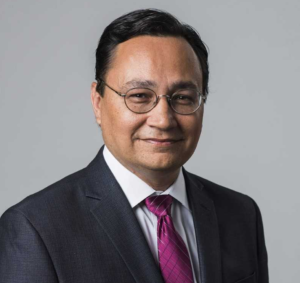On June 30, voters will make a big decision about the future of health care in Oklahoma. State Question 802 would have a $27 million economic impact on Cherokee Nation Health Services.

That money would go to support good jobs for health care professionals and provide life-saving treatments and medicine to Cherokees. As our health care heroes battle the spread of the COVID-19 virus, it is more important than ever to provide the support they need.
I hope you will join me in voting YES on State Question 802. By bringing home our tax dollars to provide health coverage, we will improve health and family finances for Cherokees across Oklahoma, help keep rural hospitals open, and boost the economy.
Currently, 36 other states get billions of dollars in health care funding through Medicaid expansion. For the past decade, Oklahoma has chosen not to participate in Medicaid expansion, sending millions of Cherokees’ federal tax dollars to neighboring states, like Arkansas, Louisiana, Colorado and New Mexico.
Cherokee Nation’s tribal health system is partially funded by federal dollars through the Indian Health Service. However, those IHS appropriations have always been well below the full cost of caring for our tribal citizens. To make up the difference as best we can, we need Cherokees to have insurance coverage, whether through Medicaid, Medicare, the Veterans Administration or private insurance.
Passing State Question 802 will allow almost 14,000 Cherokees and other American Indian patients in our Cherokee Nation health system access to health coverage.
Expanding coverage for Cherokee citizens will dramatically strengthen the finances of our tribal health system. Expansion will allow us to provide more care at no cost to the state, because services for a Medicaid patient at a tribal facility are 100% federally reimbursed. The funds will allow us to treat more patients, provide more medications, and pay for more referrals when Cherokees need care outside our health facilities.
Cherokee Nation Health Services provides some of the best early and preventative care in the country. Unfortunately, many Oklahomans in our community are forced to put off essential medical care because they do not have health insurance. Many have gone without heart medication or cancer treatment until the problem became much worse. Even more Oklahomans have gone bankrupt or felt extreme financial stress over the cost of care without insurance. This creates a financial strain that impacts all of us. Too many rural hospitals in Oklahoma have shut down because their patients were not able to pay for care. Passing State Question 802 will go a long way toward reversing these trends.
On June 30, I urge everyone in the Cherokee Nation and across Oklahoma to vote YES on State Question 802. For this election, you have until June 5 to register to vote and until June 24 to request an absentee ballot in the mail. Visit www.yeson802.org if you would like to get involved in the campaign to pass State Question 802.
A yes vote will make a lasting difference for better health and financial security of Cherokees and all 4 million Oklahomans.
Chuck Hoskin, Jr. is the principal chief of the Cherokee Nation.
More Stories Like This
Native News Weekly (August 25, 2024): D.C. BriefsUS Presidents in Their Own Words Concerning American Indians
Native News Weekly (December 14, 2025): D.C. Briefs
Wounded Knee Massacre Site Protection Bill Passes Congress
Two Murdered on Colville Indian Reservation
Help us defend tribal sovereignty.
At Native News Online, our mission is rooted in telling the stories that strengthen sovereignty and uplift Indigenous voices — not just at year’s end, but every single day.
Because of your generosity last year, we were able to keep our reporters on the ground in tribal communities, at national gatherings and in the halls of Congress — covering the issues that matter most to Indian Country: sovereignty, culture, education, health and economic opportunity.
That support sustained us through a tough year in 2025. Now, as we look to the year ahead, we need your help right now to ensure warrior journalism remains strong — reporting that defends tribal sovereignty, amplifies Native truth, and holds power accountable.
 The stakes couldn't be higher. Your support keeps Native voices heard, Native stories told and Native sovereignty defended.
The stakes couldn't be higher. Your support keeps Native voices heard, Native stories told and Native sovereignty defended.
Stand with Warrior Journalism today.
Levi Rickert (Potawatomi), Editor & Publisher
